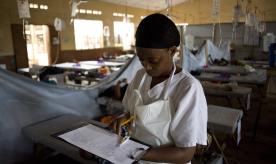Blog
Discover our latest blogs and blog series.

Gender equality
Why conflict hurts women most and the need for coordinated interventions
Blog

Gender equality
Is discrimination in access to capital behind gender gaps in business in Ethiopia?
Blog

Gender equality
How religion can encourage women to conserve water in Jordan
Blog

Gender equality
Women and health in India
Blog

Gender equality
Paternalistic gender discrimination: Evidence from labour markets in Bangladesh
Blog

Gender equality
What prevents women’s labour force participation in Pakistan?
Blog
Writing for the IGC blog
The IGC blog is an online platform for researchers and development practitioners to present and apply their research to the policymaking world.
1–10 of 909 items
• Sorted
Ideas for India
Research-based analysis and commentary on Indian growth and development to promote more evidence-based policy.
VoxDev
A platform for economists, policymakers, practitioners, donors, the private sector and others interested in development to discuss key policy issues. Supported by the IGC, CEPR, and PEDL.






